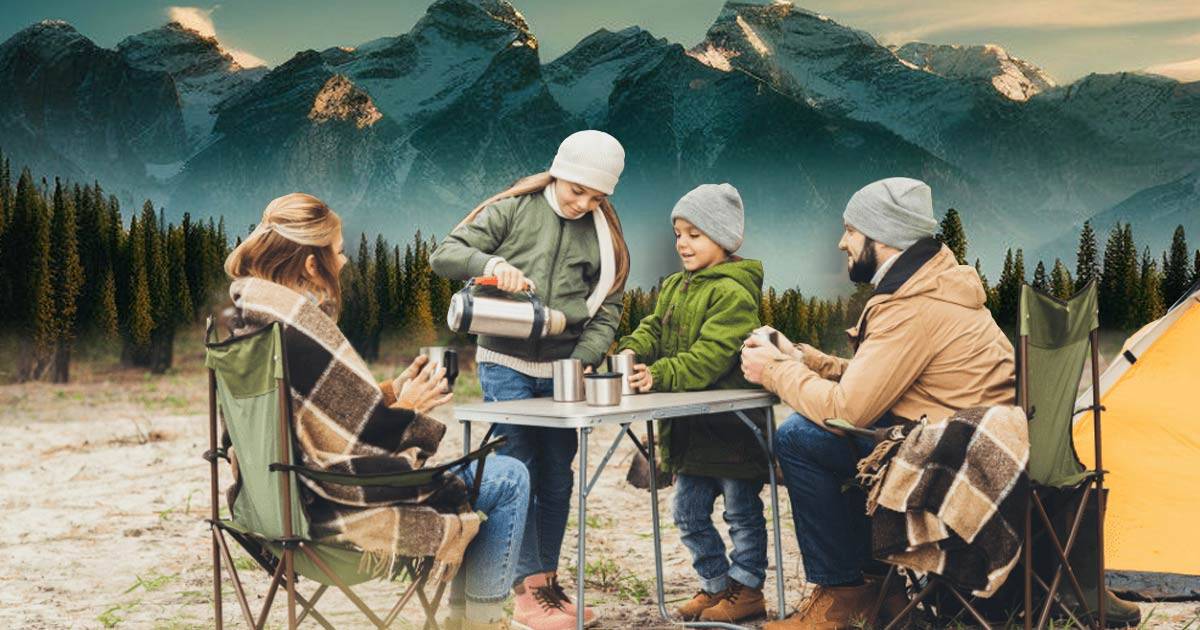Family Camping Guide: Setup Tips & Fun Ideas for the Ultimate Adventure

Heading into the great outdoors with your family for a camping trip isn’t just a fun getaway from everyday life; it brings loads of benefits for everyone. Being outside lets you all enjoy physical activities that boost your health and happiness. Research shows that exposure to nature, like going camping, can lower stress, lift your mood, and get you moving more, which is good for your body and mind. Camping is super popular too, with 58 million Americans having camped in 2022, showing how much people love this outdoor adventure.
Getting your kids involved in camping is a fantastic way for them to pick up important life skills and make unforgettable memories. Whether they’re learning survival tricks or marveling at nature’s beauty, camping sparks their curiosity and strengthens the family bond.
15 Tips for Making Family Camping Easy
Planning a family camping trip is about more than just gathering your tents and sleeping bags. It’s a golden chance to teach kids important life lessons, all while having a ton of fun and making your family ties even stronger. Here’s how you can make your camping trip both enjoyable and full of learning:
- Using Pictures to Plan: When kids help plan the trip with pictures and calendars, they get super excited. This helps them learn to prepare for upcoming events and shows them how teamwork makes everything better.
- Turning Packing into a Game: Making a game out of packing, like a scavenger hunt, teaches kids why being organized is key. They learn that knowing where their stuff is makes any activity, like camping, much smoother and more fun.
- Picking the Campsite as a Family: Deciding together on where to camp is a great lesson in making choices. Kids learn to weigh their options and see the beauty in different types of nature spots, growing their love for the outdoors.
- Cooking Together: Inviting kids to help with cooking shows them the ropes of preparing meals and the importance of eating healthy. It also teaches them that when everyone pitches in, mealtime becomes a special moment for the whole family.
- Group Gear Sorting: Packing together is more than just getting ready; it’s a lesson in deciding what’s needed and keeping things neat. These are skills that come in handy not just on the trail but in life in general.
- Safety Lessons Through Play: Using games to teach safety makes the lessons stick because they’re fun. It’s a way for kids to learn to look after themselves and understand why looking out for each other is so important.
- Random Activity Selection: Having an activity jar adds an element of surprise and keeps things fair. It’s a good lesson for kids to try new things and respect what others like to do too.
- Nature Care Projects: Activities that teach how to care for the environment help kids see the value of protecting nature. They learn that their actions have an impact on plants and animals and that being mindful can make a difference.
- Stories of Being Flexible: Sharing tales of past trips where things didn’t go as planned but still ended up great teaches flexibility. Kids learn that sometimes the best adventures aren’t planned and that being open to change is part of the fun.
- Quiet Moments in Nature: Encouraging quiet time outside helps everyone feel more connected to the world around them and to each other. It teaches kids to appreciate the little things and to carry a sense of calm and positivity.
- Weather-Ready Packing: Showing kids how to pack for any weather condition teaches them to be ready for anything. They learn the importance of self-care by dressing appropriately, which helps them become more independent.
- Nighttime Rehearsals: Getting used to the dark before the trip makes the real thing less scary. It’s a way for kids to learn that the night is just another part of nature, and sleeping under the stars can be an adventure.
- Detective Adventures: Exploring with a detective kit turns learning into a treasure hunt. Kids get to ask questions and search for answers, sparking their curiosity and love for discovering new things about the world.
- Fire Safety Fun: Learning about fire safety through activities shows kids how serious and important it is to be careful. They learn practical ways to stay safe and the importance of taking care of each other in every situation.
- Learning to Unwind: Teaching relaxation techniques gives kids tools to find peace and calm in nature and in themselves. It’s not only good for their mental health but also teaches them to enjoy quiet moments and the beauty around them.
The Lasting Benefits of Family Camping
Camping is a fantastic way for families to bond, learn new skills, and enjoy the beauty of nature together. It’s not just about taking a break from daily life; it’s an opportunity for kids to become more independent and confident as they learn to set up tents, cook outdoors, and explore nature. These activities teach them problem-solving skills and responsibility while fostering a love for the outdoors. For the whole family, camping strengthens relationships through shared tasks, stories, and adventures, creating lasting memories.
Moreover, camping allows families to disconnect from technology and reconnect with each other in a meaningful way. Without the distractions of everyday life, families can enjoy simple pleasures like hiking, playing games, and relaxing together, which enhances communication and togetherness. The experiences gained from camping—whether it’s laughing at mishaps, marveling at the night sky, or working together to overcome challenges—enrich family life and deepen bonds, making every camping trip a valuable adventure.
